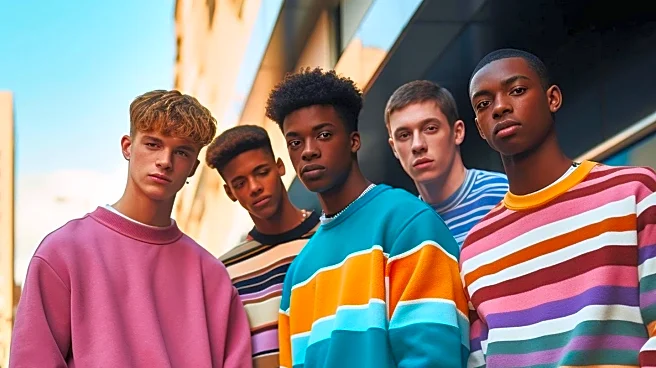What's Happening?
The Spring/Summer 2026 Fashion Month showcased a new generation of Gen Z models who dominated the runways across major fashion capitals. Notable appearances included models with famous last names and newly discovered stars, marking a significant shift in the modeling industry. Established names like Bella Hadid and Kendall Jenner were present, but the spotlight was on emerging talents such as Kai Schreiber and Cortisa Star. These fresh faces graced the catwalks of renowned designers like Schiaparelli, Miu Miu, and Isabel Marant, bringing a youthful energy and diversity to the fashion scene.
Why It's Important?
The emergence of Gen Z models in the fashion industry signifies a broader cultural shift towards inclusivity and diversity. As these young models gain prominence, they challenge traditional beauty standards and bring new perspectives to the industry. This trend could influence fashion marketing strategies, as brands may increasingly seek to connect with younger audiences who value representation and authenticity. The rise of Gen Z models also reflects changing consumer preferences, with a focus on individuality and social consciousness, potentially impacting fashion design and production practices.
What's Next?
As Gen Z models continue to gain traction, fashion brands and designers may adapt their strategies to cater to this demographic. This could involve more collaborations with influencers and models who resonate with younger audiences. Additionally, the industry might see a shift towards sustainable and ethical fashion practices, aligning with the values of Gen Z consumers. The success of these models could inspire more diversity in casting, leading to a broader range of representation in future fashion shows.
Beyond the Headlines
The rise of Gen Z models may also influence cultural perceptions of beauty and identity. As these models become role models for younger generations, they could inspire a more inclusive and accepting society. This shift might extend beyond fashion, affecting media representation and societal norms. The impact of Gen Z models could also lead to increased advocacy for social issues, as they use their platforms to promote causes important to their generation.










